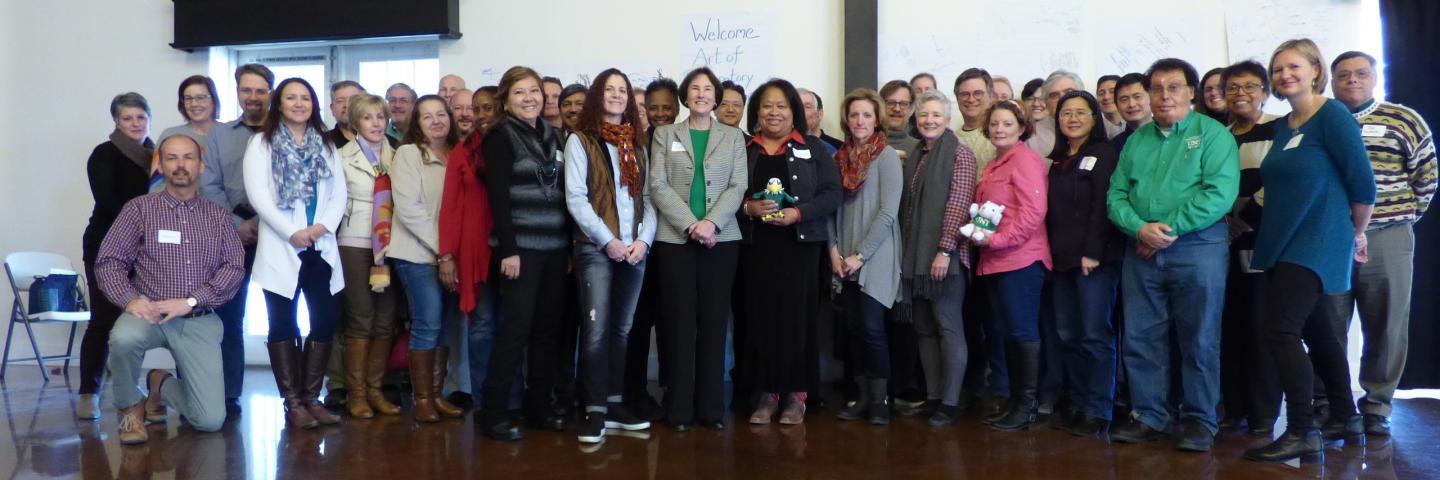Fall 2017 Participatory Leadership Cohort
Can UNT’s academic leaders awaken to different ways of being in leadership together? Can we move beyond individual agendas to processes of co-learning and co-evolution that lead to wise action and change? Can that lead to greater student success? Increased enrollment? Better student retention? Stronger research collaborations? New innovative ideas, programs and initiatives?
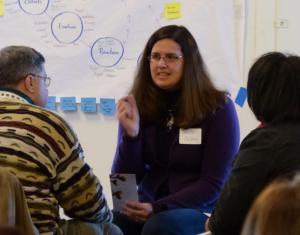 “Yes,” many answered after spending three days with Provost Jennifer Cowley learning new techniques in The Art of Participatory Leadership, which was led by facilitators Chris Corrigan, Caitlin Frost and Tenneson Woolf.
“Yes,” many answered after spending three days with Provost Jennifer Cowley learning new techniques in The Art of Participatory Leadership, which was led by facilitators Chris Corrigan, Caitlin Frost and Tenneson Woolf.
Provost Cowley brought 40 academic leaders and faculty members together before the spring semester started to strengthen their leadership skills and learn new methods of achieving collaborative work. They participated in a three-day workshop, which was designed to help them build on their leadership skills and add new techniques for facing ever-increasing complex work and working more collaboratively to find new solutions. Another 40 academic leaders will come together in May 2018 for a second session of the workshop.
“Higher education is evolving and the needs of our students are changing rapidly. We’re being asked to act more quickly on challenges and opportunities for the university but we don’t always have the time or the resources at the onset,” Provost Cowley said. “To ensure we are as successful as we can be, we have to be willing to step outside the box to think differently and try new methods. Together, we can better advance our key needs and initiatives at UNT simply by improving our meetings and crafting strategies to be more collaborative and productive in our work. This leadership workshop was a great opportunity to work with our colleagues across the university to think of new ways to tackle our challenges and take advantage of our opportunities.”
Working on Real-Time Issues
In addition to building leadership skills, the group of academic leaders leveraged the time together to tackle real issues facing them in their colleges, departments and classrooms such as how to grow enrollment, better help students stay in school to earn their degrees, find new sources of funding for graduate students and transform programs into nationally ranked or internationally recognized programs that business and industry want to support.
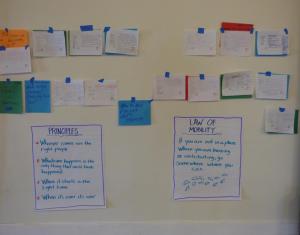
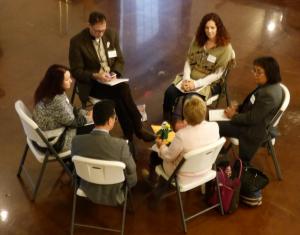
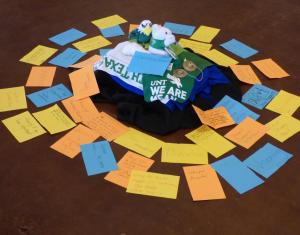 “There are crucial decisions facing the university, and these are some new alternatives to help us work better together to tackle the issues,” said Brian Collins, incoming chair of the Department of Public Administration and a UNT Leadership Fellow. “If we are not changing, then we are missing opportunities to innovate. There are lots of reasons to stay the course, especially in our nationally ranked program, but there are even more reasons to do things even better.”
“There are crucial decisions facing the university, and these are some new alternatives to help us work better together to tackle the issues,” said Brian Collins, incoming chair of the Department of Public Administration and a UNT Leadership Fellow. “If we are not changing, then we are missing opportunities to innovate. There are lots of reasons to stay the course, especially in our nationally ranked program, but there are even more reasons to do things even better.”
Throughout the workshop, participants learned new tools to collaborate and think differently, and then they were asked to immediately put them into practice by engaging in conversations with each other in small groups. Participants also were challenged to think about:
- Are we asking the right questions?
- Are we using the right measures?
“We have a shared purpose, and it was very validating to interact with other departments and colleges to learn how they operate and solve problems. I gained insight into what types of approaches are used across campus that I might adopt to do better and strengthen my programs,” said Glenisson de Oliveira, dean of the Honors College and the Texas Academy of Mathematics and Science.
Making Immediate Changes
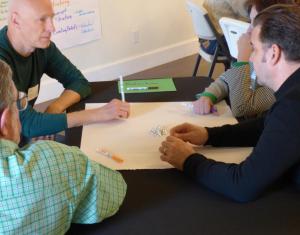 Jiangping Chen, professor of information science, agreed that the workshop was time well spent. “One of the most immediate changes for me will be how we hold meetings,” she said. “I was able to develop some new skills and am excited about some of the new ideas. I also didn’t know most of the people who participated so I had a good time learning from them and am taking away some new practices to try in my area.”
Jiangping Chen, professor of information science, agreed that the workshop was time well spent. “One of the most immediate changes for me will be how we hold meetings,” she said. “I was able to develop some new skills and am excited about some of the new ideas. I also didn’t know most of the people who participated so I had a good time learning from them and am taking away some new practices to try in my area.”
On the final day, the group of academic leaders divided into small groups to practice Pro Action Café techniques and coached each other in finding solutions on real projects. Several participants said they felt inspired by the intense rounds of idea sharing and brainstorming in the structured conversations designed to bring out creativity and set actions in motion.
“We haven’t just learned how to run a meeting,” said Ed Dzialowski, professor of biological sciences and a UNT Leadership Fellow. “We have developed some new ideas on how to draw people out and engage them differently. I think this will help us to come together differently, and I’m excited about what we can achieve.”

